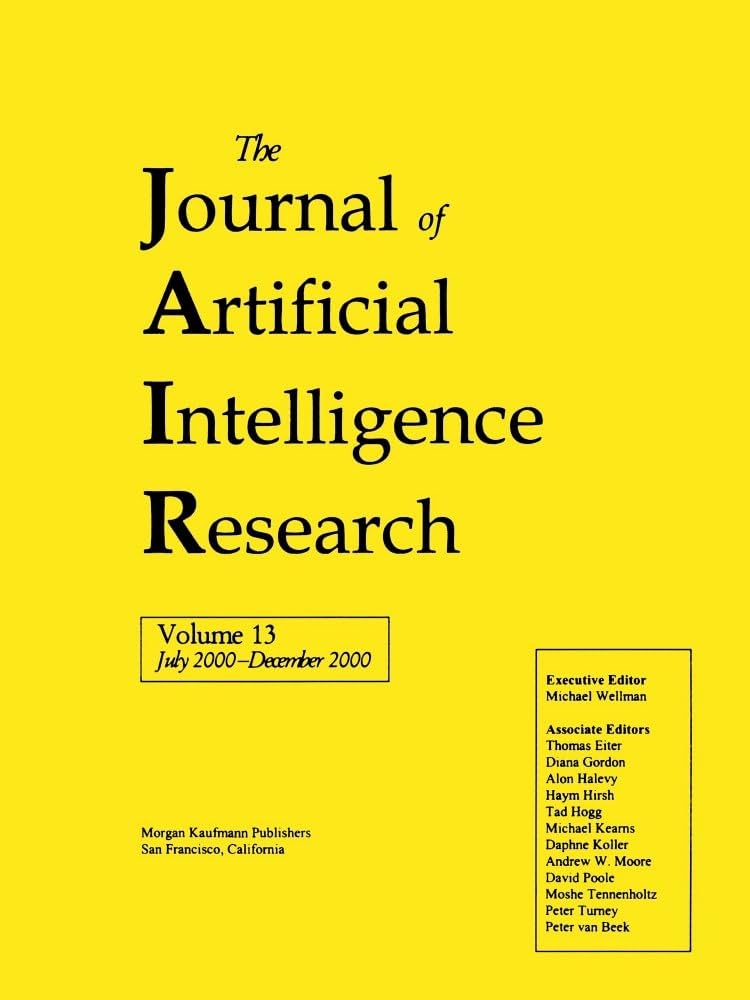USN: A Robust Imitation Learning Method against Diverse Action Noise
IF 4.5
3区 计算机科学
Q2 COMPUTER SCIENCE, ARTIFICIAL INTELLIGENCE
引用次数: 0
Abstract
Learning from imperfect demonstrations is a crucial challenge in imitation learning (IL). Unlike existing works that still rely on the enormous effort of expert demonstrators, we consider a more cost-effective option for obtaining a large number of demonstrations. That is, hire annotators to label actions for existing image records in realistic scenarios. However, action noise can occur when annotators are not domain experts or encounter confusing states. In this work, we introduce two particular forms of action noise, i.e., state-independent and state-dependent action noise. Previous IL methods fail to achieve expert-level performance when the demonstrations contain action noise, especially the state-dependent action noise. To mitigate the harmful effects of action noises, we propose a robust learning paradigm called USN (Uncertainty-aware Sample-selection with Negative learning). The model first estimates the predictive uncertainty for all demonstration data and then selects sampleswith high loss based on the uncertainty measures. Finally, it updates the model parameters with additional negative learning on the selected samples. Empirical results in Box2D tasks and Atari games show that USN consistently improves the final rewards of behavioral cloning, online imitation learning, and offline imitation learning methods under various action noises. The ratio of significant improvements is up to 94.44%. Moreover, our method scales to conditional imitation learning with real-world noisy commands in urban drivingUSN: 针对各种动作噪声的鲁棒模仿学习方法
从不尽人意的示范中学习是模仿学习(IL)的一个重要挑战。现有的研究仍依赖于专家示范者的巨大努力,与此不同,我们考虑采用一种更具成本效益的方法来获取大量示范。也就是说,在现实场景中聘请标注者为现有图像记录标注动作。然而,当标注者不是领域专家或遇到混乱状态时,就会出现动作噪声。在这项工作中,我们引入了两种特殊形式的动作噪声,即与状态无关的动作噪声和与状态有关的动作噪声。以前的 IL 方法在演示包含动作噪声(尤其是与状态相关的动作噪声)时无法达到专家级性能。 为了减轻动作噪声的有害影响,我们提出了一种称为 USN(带有负学习的不确定性感知样本选择)的稳健学习范式。该模型首先估计所有演示数据的预测不确定性,然后根据不确定性度量选择损失较大的样本。最后,通过对所选样本进行额外的负向学习来更新模型参数。在 Box2D 任务和 Atari 游戏中的实证结果表明,USN 能够在各种动作噪声下持续改进行为克隆、在线模仿学习和离线模仿学习方法的最终奖励。显著提高的比例高达 94.44%。此外,我们的方法还可扩展到城市驾驶中真实世界噪声指令的条件模仿学习。
本文章由计算机程序翻译,如有差异,请以英文原文为准。
求助全文
约1分钟内获得全文
求助全文
来源期刊

Journal of Artificial Intelligence Research
工程技术-计算机:人工智能
CiteScore
9.60
自引率
4.00%
发文量
98
审稿时长
4 months
期刊介绍:
JAIR(ISSN 1076 - 9757) covers all areas of artificial intelligence (AI), publishing refereed research articles, survey articles, and technical notes. Established in 1993 as one of the first electronic scientific journals, JAIR is indexed by INSPEC, Science Citation Index, and MathSciNet. JAIR reviews papers within approximately three months of submission and publishes accepted articles on the internet immediately upon receiving the final versions. JAIR articles are published for free distribution on the internet by the AI Access Foundation, and for purchase in bound volumes by AAAI Press.
 求助内容:
求助内容: 应助结果提醒方式:
应助结果提醒方式:


